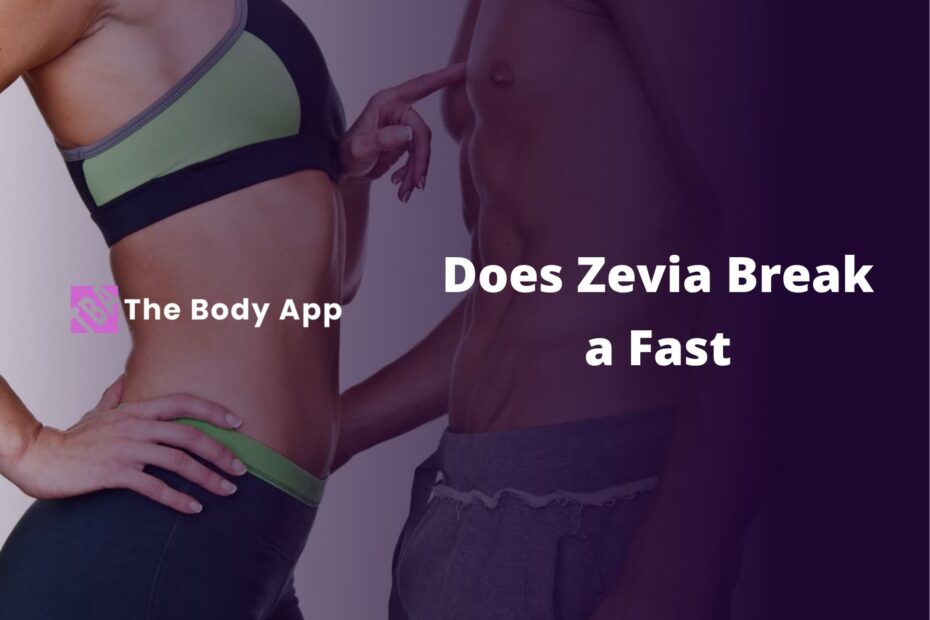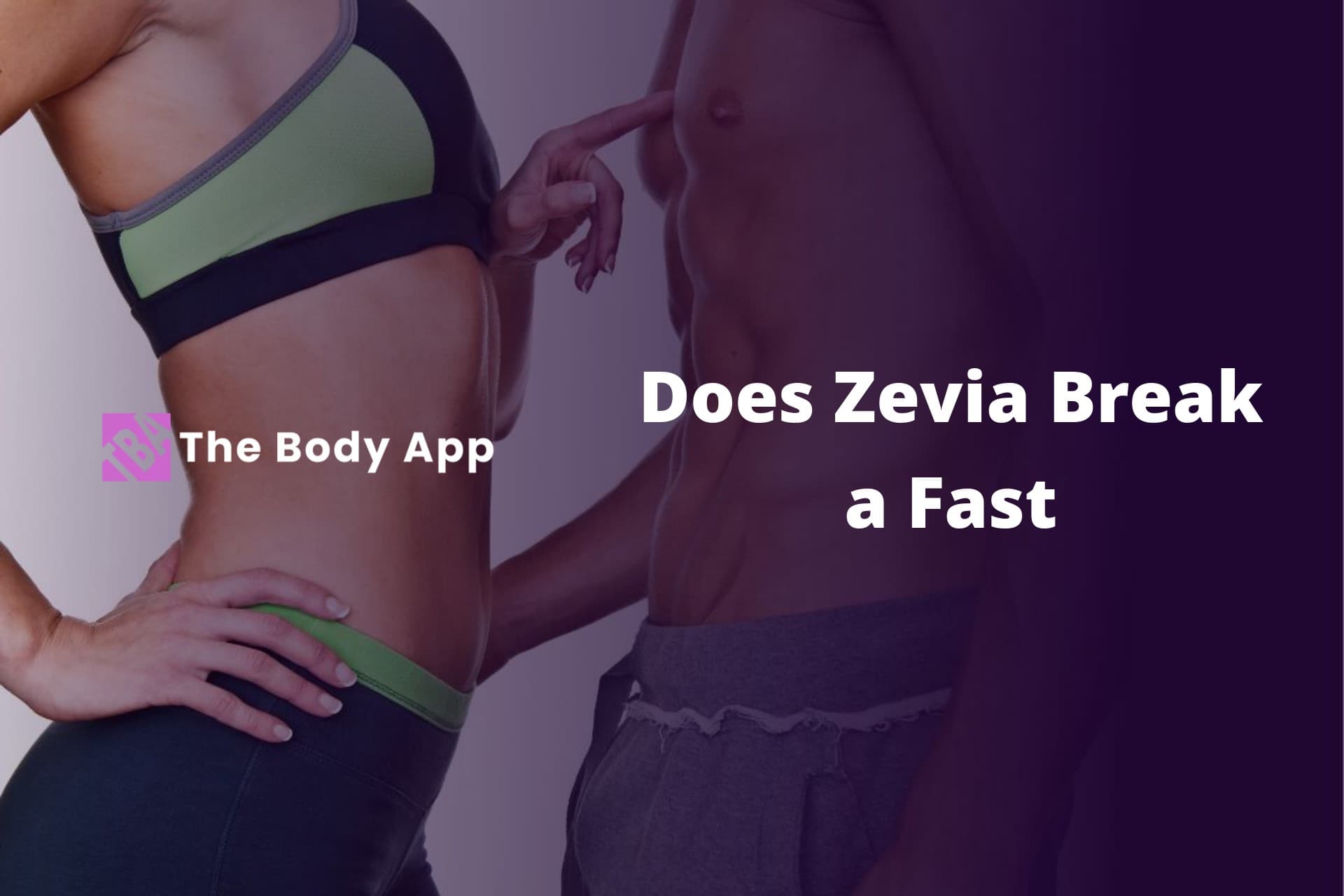Are you curious about whether Zevia, the popular zero-calorie soda, breaks a fast? Look no further! In this article, we’ll dive into the science behind fasting and explore the potential impact of Zevia on your fasting routine.
We’ll bust common myths and provide evidence-based insights to help you make informed decisions. Plus, we’ll share tips on how to incorporate Zevia into your fasting regimen effectively.
Get ready to discover the truth about Zevia and fasting!
The Science Behind Fasting
If you’re wondering about the science behind fasting, it’s important to understand how your body responds to different substances, like Zevia.
Fasting is a process that involves abstaining from food and caloric beverages for a specific period of time. During this time, your body undergoes several physiological changes that can impact your metabolism.
When you fast, your body starts to rely on stored energy sources, such as glycogen in the liver and fat stores, to meet its energy needs. This leads to a decrease in blood sugar levels and an increase in insulin sensitivity. Additionally, fasting triggers the release of hormones like growth hormone and norepinephrine, which can have beneficial effects on metabolism.
In terms of Zevia specifically, it’s important to note that it is a zero-calorie beverage sweetened with stevia. Stevia is a natural non-nutritive sweetener that does not cause an insulin response or affect blood sugar levels. Therefore, consuming Zevia during a fast should not break the fast or significantly impact your metabolic state.
However, it’s worth mentioning that some experts argue that any taste sensation can potentially trigger certain digestive enzymes and disrupt the physiological benefits of fasting. Therefore, if you prefer to err on the side of caution during your fasting periods, it may be best to stick to plain water or unsweetened herbal tea.
Overall, understanding the physiology behind fasting and how certain substances like Zevia affect metabolism can help guide your choices during periods of fasting. It’s always important to listen to your body and consult with a healthcare professional for personalized advice.
Understanding the Benefits of Fasting
Understanding the benefits of fasting can provide valuable insight into its potential positive effects on overall health and well-being. Intermittent fasting, in particular, has gained popularity for its numerous advantages. Here are three key benefits of intermittent fasting:
- Weight loss: Intermittent fasting restricts the window of time in which you can eat, leading to a reduction in calorie intake. This can result in weight loss over time, as your body taps into stored fat for energy.
- Improved insulin sensitivity: Fasting has been shown to enhance insulin sensitivity, which is crucial for regulating blood sugar levels and preventing type 2 diabetes. By giving your body a break from constant food consumption, intermittent fasting helps improve how effectively your cells respond to insulin.
- Cellular repair and autophagy: During periods of fasting, your body initiates cellular repair processes and activates autophagy — a natural mechanism that removes damaged cells and proteins. This can have anti-aging effects and potentially reduce the risk of chronic diseases like cancer.
There are various methods of intermittent fasting that people follow, including the 16/8 method (fasting for 16 hours and eating within an 8-hour window) or alternate day fasting (alternating between days of normal eating and days with restricted calorie intake).
It’s important to find a method that suits your lifestyle and consult with a healthcare professional before starting any new dietary regimen.
Exploring the Impact of Zevia on Fasting
Exploring how Zevia impacts fasting can provide valuable insights into whether this beverage aligns with the principles of intermittent fasting. One important aspect to consider is Zevia’s effect on insulin levels during fasting. Insulin is a hormone that regulates blood sugar levels, and when it is elevated, it can inhibit the process of fat burning and autophagy.
To better understand the impact of Zevia on fasting, let’s take a look at its nutritional information:
| Serving Size | Calories | Carbohydrates |
|---|---|---|
| 1 can | 0 | 0g |
As we can see from the table, Zevia contains zero calories and zero grams of carbohydrates per serving. This means that consuming Zevia during a fast should not cause a significant increase in insulin levels. Therefore, it is unlikely to break your fast or interfere with fat burning.
Another concern when it comes to fasting is whether Zevia interferes with autophagy. Autophagy is the body’s natural process of cellular repair and regeneration. Studies suggest that consuming artificial sweeteners like those found in diet sodas may suppress autophagy. However, since Zevia is made with natural sweeteners like stevia and erythritol, which have minimal impact on blood sugar levels, it may have less interference with autophagy compared to other beverages containing artificial sweeteners.
Debunking Common Myths About Fasting
Contrary to popular belief, fasting does not necessarily lead to muscle loss. In fact, when done properly, fasting can have numerous health benefits and is often a safe practice for most individuals. Let’s take a closer look at some common misconceptions about fasting:
- Fasting slows down your metabolism: Many people believe that skipping meals or going without food for an extended period of time will cause their metabolism to slow down. However, research has shown that short-term fasting actually increases metabolic rate and can promote weight loss.
- Fasting causes muscle loss: It is commonly believed that during a fast, the body will start breaking down muscle tissue for energy. While this may occur in extreme cases of prolonged fasting or severe calorie restriction, short-term intermittent fasting has been found to preserve lean muscle mass.
- Fasting leads to nutrient deficiencies: Some people worry that by skipping meals or restricting their eating window, they are missing out on important nutrients. However, with proper meal planning and nutritionally balanced meals during non-fasting periods, it is possible to meet all your nutritional needs while practicing intermittent fasting.
It’s important to note that while fasting can be beneficial for many individuals, it may not be suitable for everyone. If you have any underlying health conditions or concerns about the negative effects of fasting on your specific situation, it’s always best to consult with a healthcare professional before making any significant changes to your diet or lifestyle.
Tips for Incorporating Zevia Into a Fasting Routine
When incorporating Zevia into a fasting routine, it’s important to choose flavors that are free of calories and artificial sweeteners. Zevia is a popular brand of zero-calorie soda that is sweetened with stevia, a natural plant-based sweetener.
While some people argue that consuming any type of beverage during a fast can break the fast, others believe that certain beverages can be incorporated without disrupting the benefits of fasting.
If you want to incorporate other beverages into your fasting routine alongside Zevia, it’s crucial to opt for options that do not contain calories or artificial sweeteners. This includes unsweetened herbal tea, black coffee (without cream or sugar), and plain water. These alternatives can help satisfy your thirst and provide some variety while still allowing you to reap the benefits of fasting.
Additionally, there are alternative fasting methods that allow for limited consumption of certain foods or beverages during the fasting window. One popular approach is called ‘modified fasting’ or ‘intermittent fasting,’ where individuals consume small amounts of low-calorie drinks or snacks during the fast. However, it’s important to note that these approaches may vary in their effectiveness and should be discussed with a healthcare professional before incorporating them into your routine.
Conclusion
In conclusion, while there is limited research specifically examining the impact of Zevia on fasting, it is unlikely to break a fast. Zevia contains zero calories and no sugar, making it a popular choice for those following a fasting routine.
However, individual responses may vary, and some experts suggest avoiding any artificial sweeteners during fasting periods.
To truly understand the effects of Zevia on your fasting goals, it’s best to consult with a healthcare professional or registered dietitian who can provide personalized guidance based on your unique needs.

